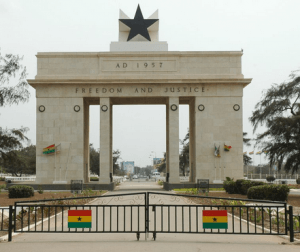Ghana ranks 61 in the world and third in Africa on Human Freedom Index
 Ghana is standing at the 61st position on the Human Freedom Index, a global measurement of personal, civil and economic freedom.
Ghana is standing at the 61st position on the Human Freedom Index, a global measurement of personal, civil and economic freedom.
The Index, published August 18, 2015 covers 152 countries of the world.
At that ranking the country is occupying the third position in Africa. Mauritius is ranked at number one in Africa and Cape Verde is second. Ranked at 70 in the world, South Africa is 4th in Africa; Namibia at 84 and Zambia at 87 are 5th and 6th respectively on the continent. The DR Congo ranks at the bottom in Africa and at 150 in the world.
The report published by the Fraser Institute, the Liberales Institut at the Friedrich Naumann Foundation for Freedom, and the Cato Institute presents a broad measure of human freedom, understood as the absence of coercive constraint.
It uses 76 distinct indicators of personal and economic freedom in the following areas: Rule of Law; Security and Safety; Movement; Religion; Association, Assembly, and Civil Society; Expression; Relationships; Size of Government; Legal System and Property Rights; Access to Sound Money; Freedom to Trade Internationally; Regulation of Credit, Labor, and Business.
Hong Kong is ranked number one in the world and the US at number 20, at the bottom of the Index is Iran at 152 in the world.
According to the publishers, countries in the top quartile of freedom enjoy a significantly higher per capita income – about $30,006 than those in other quartiles; the per capita income in the least-free quartile is $2,615.
“The Index finds a strong correlation between human freedom and democracy. Hong Kong is an outlier in this regard,” they say.
The publishers note that the findings in the Index suggest that freedom plays an important role in human well-being, adding that the findings offer opportunities for further research into the complex ways in which freedom influences, and can be influenced by, political regimes, economic development, and the whole range of indicators of human well-being.
The publishers say they followed the criteria used by the Economic Freedom of the World Project in selecting data for the Index.
“The data come from credible external sources and, for the sake of objectivity, are not generated by the authors; the index is transparent on methodology and sources; and the report covers as large a number of countries over as long a time period as was possible given the data available,” they stated.
They indicated that they generally measure official restrictions on freedom, although some measures capture social or non-official violations of liberty (e.g., violence or conflict measures).
In describing the relationship between freedom and democracy, the publishers say they used their Index and the Economist Intelligence Unit’s Democracy Index 2012 to see how political freedom and freedom relate.
“The EIU defines democracy broadly and thus constructs an index that produces a “wide” measure of democracy, as opposed to a more limited measure of the existence of free and fair elections.
The EIU’s Democracy Index covers five areas, of which we use the following four: electoral process and pluralism, functioning of government, political participation, and political culture. That index also measures civil liberties, but we set those elements aside, since that area is included in our freedom index,” they say.
By Emmanuel K. Dogbevi
